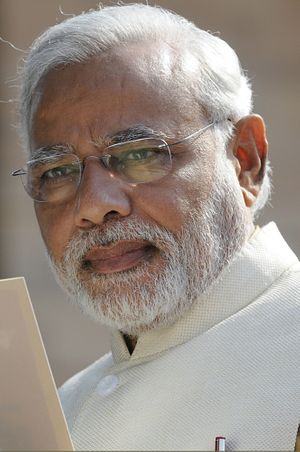When Indian Prime Minister Narendra Modi invited Pakistani Prime Minister Nawaz Sharif for his swearing- in ceremony in New Delhi last May, it was taken as a very significant diplomatic gesture and a bold initiative by the Bharatiya Janata Party (BJP) leader. Both domestic and international observers hailed it as a landmark move by an Indian leader who exhibited a new vision for India and Pakistan in South Asia compared to his predecessors. After all, it was the first time in recent memory a Pakistani leader was invited to such an important event in India.
The gesture was all the more significant as it came from Modi, a man who is perceived, certainly in Pakistan, as a radical Hindu nationalist leader. Outside India, the move was understood as an indication that Modi wanted to break with his pre-election image of an anti-Muslim politician by redefining the paradigm of the India-Pakistan relationship. Pakistanis, many of whom were apprehensive of the rise of the BJP leader, also welcomed the move and were willing to trust him.
Seven months down the line, May 2014 looks like a distant past — a meaningless gesture, a non-event. No one talks about it. Gone are hopes of a deepening relationship, greater economic engagement, and people-to-people contact between these two neighbors. Instead, bitterness and distrust define the present state of relations between the two South Asian states. Jingoism and calls for revenge come out of the mouths of political leaders in both countries.
The old political narrative has once again come to dominate the relationship between New Delhi and Islamabad. It has reached such a pass that the U.S. Secretary of State John Kerry has offered to mediate between the two neighbors so that they will resume talks to create an atmosphere conducive to peace in the region.
Ever since foreign secretary-level talks were cancelled last August, border skirmishes between the two nations have increased and as a result tensions have also mounted. India cancelled the talks to protest a Pakistani envoy’s meeting with Kashmir separatist leaders in Delhi prior to the resumption of the dialogue between the two neighbors.
It is well known that in Pakistan the elected leadership does not act without the nod of the army. Therefore, the government cannot be seen to be too eager to engage India by forgetting the core issue of Kashmir. Such a move would attract the army’s ire and stoke extremism in Islamabad. The political leadership in Islamabad thus has to tread cautiously in dealing with India; however, no such constraints bind Indian leaders.
Hope for a new beginning was from the Indian side. Modi’s initial move raised the expectations of not only the people of Pakistan but also India. The peace constituency in both the countries got a big boost, but their euphoria was short-lived.
The historic mandate of the last general elections, which catapulted the BJP to power, has its limitations. Modi got the vote on his claim that he would provide strong leadership and would stop cross-border terrorism. The vocal section of the pro-Modi electorate constitute hardcore Hindutva supporters. They do not want to see the prime minister as a passive leader, going out of his way to seek peace. Therefore, if the BJP’s core constituency is its strength, it is also its biggest weakness.
They have been dictating the fortunes of the India-Pakistan relationship. No one in the government talks of peace now; every incident at the border is looked at with great suspicion. The blame game has taken over any meaningful discourse. Border skirmishes have intensified as a result with no one trying to calm the situation.
The continuous recriminations in the last few months have hardened the people’s mood toward any kind of engagement with Islamabad. The media, furthermore, instead of acting as a balm and enlightened interlocutor plays a partisan game. As a result, the peace constituency has taken a back seat.
With fringe radical Hindu groups playing a super active role in India’s political discourse, it is becoming increasingly difficult for the Modi regime to get free from its constituency and assert itself on this vital international issue.
What’s more, following the withdrawal of international troops from Afghanistan, stabilizing the Hindu Kush is of vital interest for India. A deep distrust and enmity with Pakistan will harm New Delhi more than Islamabad. A disturbed South Asia where radical Islamic groups are trying hard to capture power is not in the interest of New Delhi. Furthermore, Kabul cannot witness peace unless Delhi and Islamabad demolish distrust and engage each other in meaningful dialogue.
Continuous acrimony with India’s Islamic neighbor also has had a negative impact on the larger population. It entrenches radicalization in Indian society. Jingoism everywhere does not create an enlightened citizenship and affects the peace constituency. The majority of the new generation of young Indians are so prejudiced and uninformed about the India-Pakistan relationship that they see Pakistan from within a narrow political prism.
If Narendra Modi wants to see a developed, progressive India, he will have to liberate himself from his own past and political parochialism. He will have to inject vision into India’s approach to Pakistan. He has the historic mandate behind him to do so.

































